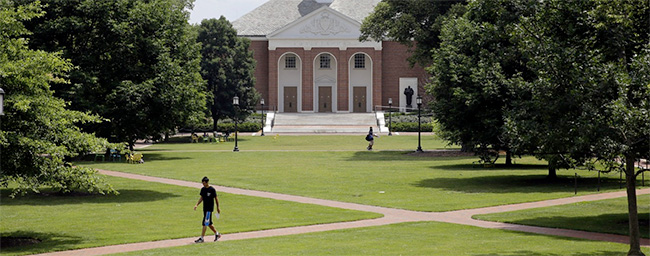You Can't Come to Christmas Dinner: How Colleges Communicate Accidental Acceptances
 Every year, at least one college makes headlines for having goofed up the all-sacred process of revealing admissions decisions. Johns Hopkins University is the latest to make this blunder, sending nearly 300 previously rejected students an email welcoming them to the class of 2019. Undoubtedly, this wrongful spark of hope is devastating to students who applied to their dream school, and being rejected twice is a hard fate to swallow. However, the narrative of these stories is always on the affected applicants, but I'd like to focus on the struggle of these universities.
Every year, at least one college makes headlines for having goofed up the all-sacred process of revealing admissions decisions. Johns Hopkins University is the latest to make this blunder, sending nearly 300 previously rejected students an email welcoming them to the class of 2019. Undoubtedly, this wrongful spark of hope is devastating to students who applied to their dream school, and being rejected twice is a hard fate to swallow. However, the narrative of these stories is always on the affected applicants, but I'd like to focus on the struggle of these universities.
Imagine for a moment you have a limited number of seats at your holiday dinner table, say 10, and a limited quantity of food. But when you send the email confirming the time of arrival to your nine guests, you mistakenly copy your whole address book, and you get responses from 20 additional friends and family excited about the dinner. You simply don't have the space or resources for the additional people (never mind that you didn't want them in the first place for whatever reason). Do you honor the accidental invitation, or do you admit your mistake and apologize? Certainly there's no right answer when looked at from this perspective, which is why universities over the years have taken different approaches. Some allow the accidental admits to attend and force a lot of triples, while others keep the original decision and crush the false hope out of the rejected. But let's assume that you chose to admit the mistake and return the guest list to its intended, reasonable size–is there a right way to disappoint the folks who are excited to join you? No.
The best you can do is exactly what Johns Hopkins did, use communication rather than inaction. Apologize and recognize the position these students were put in. Johns Hopkins's rhetoric was spot on:
"We apologize to the students affected and to their families," Phillips said. "Admissions decision days are stressful enough. We very much regret having added to the disappointment felt by a group of very capable and hardworking students, especially ones who were so committed to the idea of attending Johns Hopkins that they applied early decision."
Apologies, not excuses, are most appropriate in situations such as these. No one wants to hear you passing along the blame to the staffer who made the fatal false click. That's what happened, but that's not what people need to hear.
Adding the second sentence is vital to the apology. It acknowledges the difficult position the students were put in, and recognizes that they were a strong group, not deserving of this disappointment. Having read applications for university admission in the past, I can say that many qualified students end up being rejected, not because they are undeserving of a spot, but because it comes down to the number of beds in the dorms and seats in the classrooms.
A story in the Washington Post featured a mother of an impacted student, quoting her as saying she wants a personal phone call apology. An interesting suggestion. Johns Hopkins did not make such calls, according to the article, because they didn't want to "exacerbate the problem by drawing further attention to a painful moment for the affected students." An interesting standpoint.
As a communicator, I'm inclined to say that Johns Hopkins took the right course by not calling students. If I were to see a Johns Hopkins number popping up on my caller idea, I'd have yet another glimmer of hope. Being called for a third affirmation of rejection just seems cruel.
So, parents and students impacted by the heartbreak of double rejection—be angry! You experienced something awful. But realize that you too could have hit one wrong button. ![]() Photo Credit: Patrick Semansky/AP
Photo Credit: Patrick Semansky/AP
